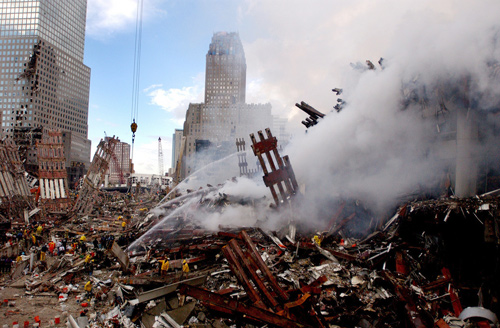Compensation Falling Short of 9/11 Clean-Up Cancers
In 2012, the federal government agreed to add 50 types of cancer to the Zadroga Act, the 9/11 compensation fund covering first responders and others working near Ground Zero who contracted illnesses or cancer following months of search, rescue and clean up efforts. The Zadroga Act (approved by Congress, 2010) was intended to provide much needed health evaluations, health care and medical monitoring to responders and clean-up workers. Unfortunately, some of the medical science is having a hard timekeeping up with the reality of the devastation that the unprecedented clean-up effort has caused. According to the most recent data from the World Trade Center Health Program, there are nearly 3,000 cases of cancer among firefighters, police officers, contractors and civilians who worked or lived near the site of the attacks.
For instance, oropharyngeal cancer, which is a cancer of the throat similar to what actor Michael Douglas was diagnosed with in 2010, has been showing up in clean-up workers in unusually high numbers. Attorney Noah Kushlefsky of Kreindler & Kreindler says he has 39 clients who have been diagnosed with oropharyngeal cancer, yet a quarter of them were denied coverage or compensation because they were diagnosed earlier than the minimum stated latency time for that cancer. One first responder, John Meyers, a former NYC police officer was diagnosed with oropharyngeal cancer 3 years and 10 months following his 2001 20 day stint providing security at Ground Zero. According to National Institute for Occupational Safety and Health guidelines, the minimum latency period for oropharyngeal cancer is 4 years. Meyers was denied coverage because he was diagnosed 2 months earlier than the guidelines state.
This has to be a dynamic process where they look at what’s going on this community and say, maybe we need to change this.
~ Attorney Noah Kushlefsky
In the meantime, NIOSH has indicated that as new scientific information becomes available, it could modify minimum latencies for certain cancers.






